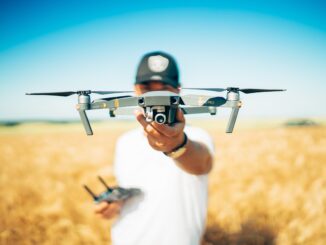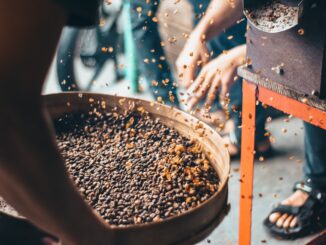We all know that the best coffees rarely stay for consumption in the countries that produce them ”when they can fetch higher prices from buyers in richer parts of the world like the United States, Europe and Japan, the highest quality coffee beans are almost never kept and savored by the people who grew them.
In Uganda, however, steps are being taken to change this. In an effort to boost domestic consumption, which is estimated at 180,000 bags per year, according to the Uganda Coffee Development Authority (UCDA), programs are being introduced to entice the locals about their amazing coffees. One of these strategies is the introduction of a Coffee Safari.
“It’s an idea that was conceived about two years ago to popularise the coffee industry in Uganda,” says Ezra Luggya, one of the proprietors of 1000 Cups. “It’s a journey to the coffee value addition chain,” he adds.
Kampala barista Michael Kijjambu, agrees, saying, “It traces the route of a coffee bean from the coffee shop backwards to the field. It links the farmer to the market.”

The Coffee Safari begins at the UCDA offices, where participants are led by a barista through various exercises like cupping. “From the testing facility, we move to the exporter, roasting facility, to a research station to find out how seeds are multiplied and finally to the farm,” he says.
Then participants move on to the farm. “If it’s season time, we pick coffee, roast it and organise some games at the farm. “We always want to find something that makes an interesting fun day out for our customers,” Kijjambu told The Independent. Although one farm, Bulansuku Farm Estates, has been visited so far, the visits are open to any other farm. “This is not a selfish endeavour.”
The Coffee Safari doesn’t only benefit consumers, but also the farmers. “Very few farmers know what happens to their coffee beyond their farms. But if they were involved in the whole process, they would probably know what explains their low prices, which could be poor storage methods.” Kijjambu says that if someone understands the whole coffee process, they can see what part they contribute and probably appreciate other people’s roles better.
The most important thing that Coffee Safari has added to the industry is feedback. Many people have come to Uganda without the knowledge that it’s a coffee growing country. Coffee Safari has also benefited rural economy where tourists often buy items along the way to the farms.
To encourage everyone to join the Coffee Safari, there are booking offices at Ban Café, Back Packers, Good African Coffee among other places. “We are not competitors but we are working in concert for the good of the whole industry,” Kijjambu says.
For more information, visit the UCDA site HERE.




